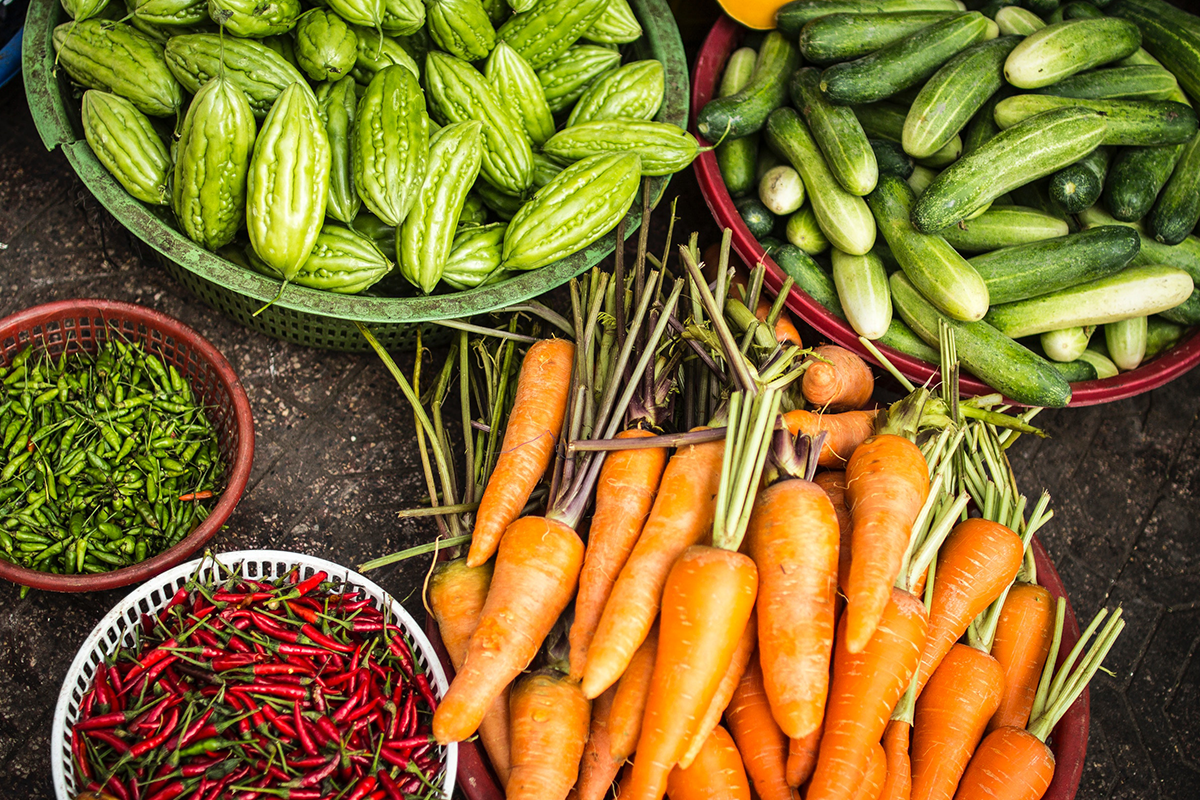Photo by Megan Hodges on Unsplash.
Have you ever wondered what some of the labels printed on the packaging of the food products you buy mean? There are so many different ones, that this week we tell you which are the most common certificates in healthy and organic food products, their meaning, and who is responsible for checking and backing these labels.
USDA ORGANIC

The first seal we will talk about is the one that certifies a product is organic. The use of this word in the packaging of a product is regulated in the United States, and can not be used without prior certification. This is obtained through a process in which the United States Department of Agriculture (USDA), inspects each step of the production, processing, packaging, and labeling of the product to ensure compliance with federal and organic standards. The products can obtain certification in four different categories, according to the percentage of organic ingredients that have: “100% Organic”, Organic, Made with Organic and Organic Ingredients.
The following USDA infographic explains what these categories are:
This is the meaning of the organic certificate obtained from Consumer Reports1 :
The “organic” labeling claim is unique: Unlike most other claims, no producer or company can represent their food as “organic” unless the product is certified by a USDA-accredited certification agency and is in compliance with all of the requirements of the U.S. Department of Agriculture’s organic standards.*
The USDA organic standards are comprehensive and promote a sustainable system of agriculture; among the many requirements and prohibitions are a requirement for responsible soil management and prohibitions on the use of synthetic fertilizers, nearly all synthetic pesticides, antibiotics, artificial hormones, and nearly all synthetic food additives.
Rainforest Alliance

The second seal that we can find in food products is the Rainforest Alliance, which indicates that the food comes from farms that meet environmental, social, and economic sustainability standards. This certificate is given by The Rainforest Alliance, an international non-profit organization working to build strong forests, healthy agricultural landscapes, and thriving communities through creative, pragmatic collaboration.
This is the meaning according to Consumer Reports:
The Rainforest Alliance Certified seal means that some or all of the ingredients are sourced from farms that comply with the standards of the Sustainable Agriculture Network, which aims to promote sustainability in farming and protect farmers, forests, wildlife, and local communities. The seal is verified through on-farm inspections.
NON-GMO

This label means that the food product was produced without genetic modification and its ingredients are not derived from GMOs2. Additionally, the product complies with the Non-GMO Project Standards.
The Non-GMO Project is an independent non-profit organization with the mission of preserving and creating product sources without genetic modification.
This is the meaning according to Consumer Reports:
The Non-GMO Project Verified seal is verified and is a highly meaningful label for consumers wishing to avoid GMOs in the foods they buy and to support farmers who don’t use GMOs. It means producers complied with the Non-GMO Project’s standards, which are aimed at helping consumers find foods without GMOs. “GMO” stands for genetically modified organism and refers to plants, animals, or other organisms whose genetic code has been changed in ways that do not occur naturally.
Naturally Grown

This label means that the food product comes from farms that do not use synthetic herbicides, pesticides, fertilizers or genetically modified organisms. In order for the product to carry this seal on its packaging, it must comply with the Certified Naturally Grown (CNG) standards and the United States Department of Agriculture (USDA) standards for organic production. In order for the farm to obtain the certificate, an inspection is carried out by another farmer certified by Naturally Grown.
This is the meaning according to Consumer Reports:
The seal means that the farm meets the Certified Naturally Grown (CNG) standards, which are based on the USDA organic standards for crops and livestock. These standards promote a sustainable system of agriculture, requiring responsible soil management and prohibiting the use of synthetic fertilizers, most synthetic pesticides, antibiotics, and artificial hormones. For verification, the CNG program uses a peer-review system, where the farmer sets up an inspection by another farmer, extension agent, or three of the farm’s customers, instead of using a third-party certification agency.
These are some of the most common and meaningful seals and labels that we can find in produce and other food and personal care products. There are others specific seals for certain types of foods such as meats, chicken, milk, eggs, fruits, and vegetables. Wait for our next publications, where we will inform you about these seals as well as those on the labels on cleaning products and their individual ingredients.
Subscribe to our blog, you will always find natural cleaning tips, and other tips that will help you in the routines of your daily life.
Stop complicating yourself with the housework, try our professional ecological cleaning service, you will love it.
Soruces:
- https://www.ams.usda.gov/publications/content/whats-behind-organic-seal-organic-labels-explained
- http://www.justlabelit.org/about-ge-foods-center/about-gmo-foods/
- http://greenerchoices.org/labels/
- https://www.consumerreports.org/cro/magazine/2013/08/making-sense-of-food-labels/index.htm
- https://www.thebalancesmb.com/questions-about-organic-labels-2538332
- https://www.ams.usda.gov/rules-regulations/organic/labeling
- https://livingnongmo.org/learn/gmo-faq/#7
1 Consumer Reports is an independent, nonprofit member organization that works side by side with consumers for truth, transparency, and fairness in the marketplace.
2 “A GMO, or genetically modified organism, is a plant, animal, microorganism or other organisms whose genetic makeup has been modified in a laboratory using genetic engineering or transgenic technology. This creates combinations of plant, animal, bacterial and virus genes that do not occur in nature or through traditional crossbreeding methods.” according to Non-GMO Project.

